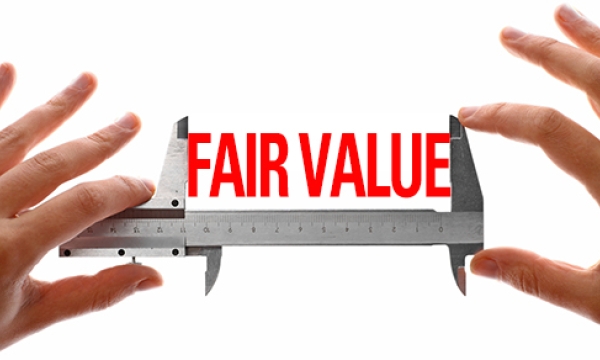Recent News & Blog / Audit
GAAP vs. tax-basis: Which is right for your business?
Most businesses report financial performance using U.S. Generally Accepted Accounting Principles (GAAP). But the income-tax-basis format can save time and money for some private companies.
How to keep track of small tools and equipment
Whether it’s hard hats and drills on a jobsite, iPads in an office or RFID readers in a warehouse, small tools and equipment have a tendency to disappear at many companies. The cost of lost, damaged and stolen items can quickly add up, consuming profits and cash flow.
Measuring fair value for financial reporting
Business assets are generally reported at the lower of cost or market value. Under this accounting principle, certain assets are reported at fair value, such as asset retirement obligations and derivatives.
Auditing grant compliance
Has your organization received any public or private grants to fund its growth? Grants sometimes require an independent audit by a qualified accounting firm. Here’s what grant recipients should know to help facilitate matters and ensure compliance at all levels.
Reporting discontinued operations
Financial reporting generally focuses on the results of continuing operations. But sometimes businesses sell (or retire) a product line, asset group or another component. In certain situations, such a disposal should be reported as a discontinued operation under U.S.
What to expect during a franchise audit
It’s important for franchisors to periodically audit individual franchisees. These routine “check-ups” are especially valuable in a store’s early years of operations or if performance starts to deteriorate.
FAQs about CAMs
In July, the Public Company Accounting Oversight Board (PCAOB) published two guides to help clarify a new rule that requires auditors of public companies to disclose critical audit matters (CAMs) in their audit reports.
Which entity is most suitable for your new or existing business?
The Tax Cuts and Jobs Act (TCJA) has changed the landscape for business taxpayers. That’s because the law introduced a flat 21% federal income tax rate for C corporations. The TCJA also cut individual income tax rates, which apply to sole proprietorships and pass-through entities, including partnerships, S corporations, and LLCs (treated as partnerships for tax purposes). These changes have caused many business owners to ask: What’s the optimal entity choice for me?
AUP Engagements: A Middle Ground Between Audits and Consulting Services
Your CPA offers a wide menu of services. An audit is a familiar type of attestation service that provides a formal opinion about whether the company’s financial statements conform to U.S. Generally Accepted Accounting Principles (GAAP).
Measuring "Fair Value" for Financial Reporting Purposes
The standard for valuing certain assets and liabilities under U.S.









